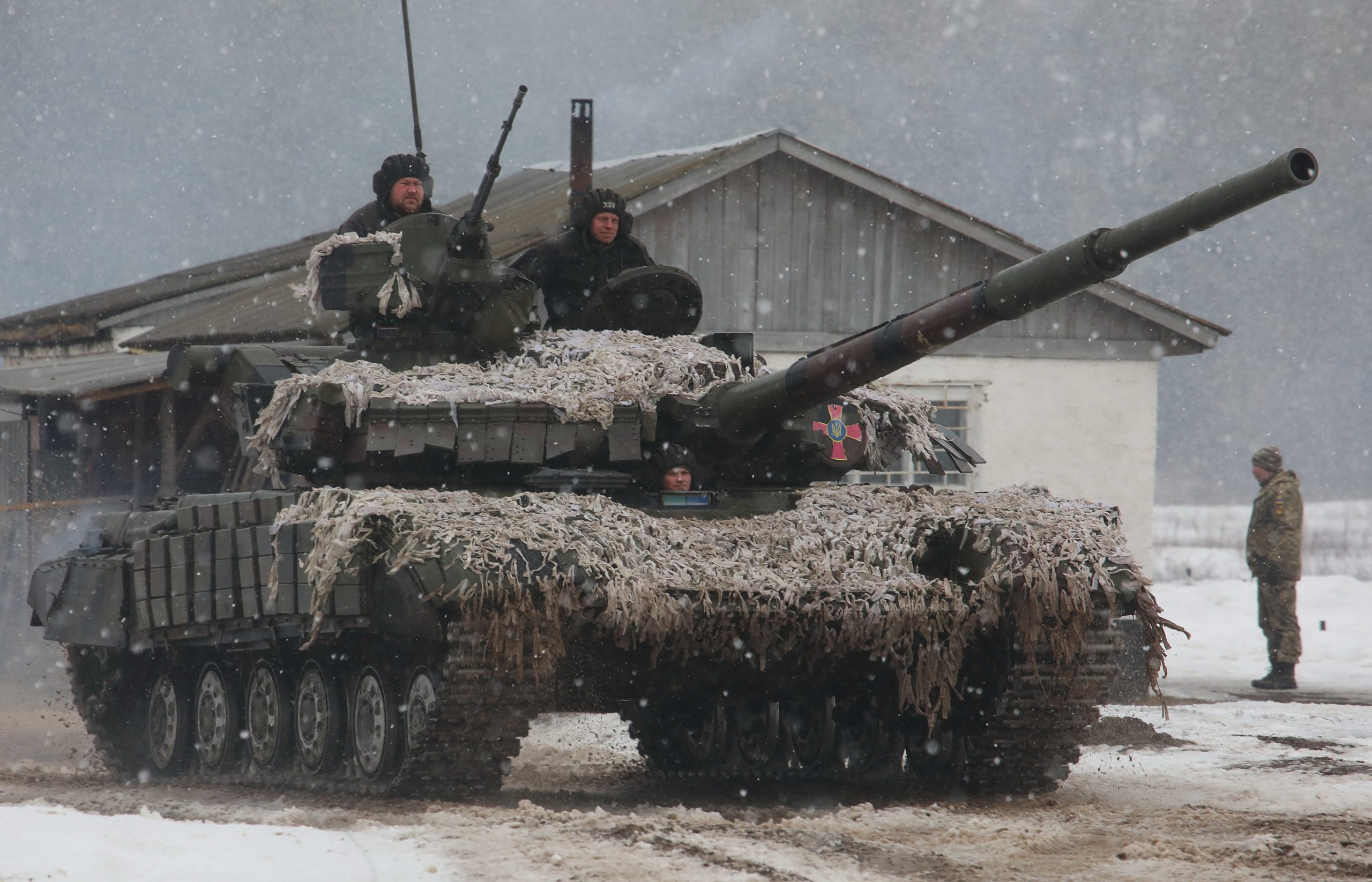
Chris Lange, FISM News
[elfsight_social_share_buttons id=”1″]
Ukraine is waiting for Russia to respond to its request for a meeting between the two countries as the U.S. and other allied nations are bracing for potential armed conflict to break out at any moment.
Ukrainian Foreign Minister Dmytro Kuleba on Sunday called for Russia and all participating states to meet within 48 hours to discuss “reinforcement and redeployment” on their border in a tweet.
“Russia failed to respond to our request under the Vienna Document. Consequently, we take the next step. We request a meeting with Russia and all participating states within 48 hours to discuss its reinforcement & redeployment along our border & in temporarily occupied Crimea,” Kuleba wrote.
The Vienna Document is a treaty signed by 56 countries as part of the Organization for Security and Cooperation in Europe (OSCE) that calls for military transparency.
“If Russia is serious when it talks about the indivisibility of security in the OSCE space, it must fulfill its commitment to military transparency in order to de-escalate tensions and enhance security for all,” he added in a separate tweet.
If Russia is serious when it talks about the indivisibility of security in the OSCE space, it must fulfill its commitment to military transparency in order to de-escalate tensions and enhance security for all 2/2
— Dmytro Kuleba (@DmytroKuleba) February 13, 2022
Having spent weeks trying to tamp down fears of a Russian attack, Ukraine’s President Volodymyr Zelenskiy acknowledged that his country has been hit with cyber and economic attacks and that an “alien army” is positioned at its borders, according to reporting by The New York Post.
“We are being threatened by a great war, and the date of the invasion has been appointed,” he said during a Monday address in a reference to warnings from White House officials that a Russian invasion is days, if not hours, away.
“We are told that Feb. 16 will be the day of attack, but we will make it the Day of Unity,” Zelensky said, announcing that he signed an official decree to that end.
“On this day, we will hoist national flags everywhere, and wear blue and yellow ribbons to show the entire world our unity.”
Zelenskiy later clarified his reference to Feb. 16 as the day Russia will invade, which some said had been made sarcastically, is merely the date given by media reports which are unconfirmed.
Meanwhile, Secretary of State Antony Blinken announced Monday that the U.S. is relocating its Ukraine embassy operations from the capital Kyiv to the western city of Lviv, about 50 miles from Ukraine’s border with Poland, due to a “dramatic acceleration in the buildup of Russian forces.” Large clusters of Russian troops positioned along Ukraine’s borders for weeks have now spread out in a move that has further stoked Western fears of an impending attack.
Blinken said the decision to temporarily move the embassy was made out of concern for the safety of the staff, the majority of whom have already been ordered to leave Ukraine, and said the move “in no way” compromises U.S. support for Ukraine’s “sovereignty and territorial integrity.” Blinken further added that American diplomats will “remain engaged” with the Ukrainian government. Lviv is located about 50 miles from Ukraine’s western border with Poland.
State Department Spokesman Ned Price told reporters on Tuesday that Washington continues to push Moscow for a diplomatic resolution to the Ukrainian crisis but said it is “unclear to us whether Russia is interested in… pursuing a diplomatic course.” Russia’s foreign minister Sergei Lavrov, speaking at a televised meeting with Russian President Vladimir Putin Monday, said Moscow was willing to continue its dialogue with Western leaders but reiterated Russia’s demand for security guarantees. Price, however, seemed unimpressed, telling reporters, “What we have not taken note of is any indication of de-escalation.”
On Tuesday, Russia provided a glimmer of hope that weeks of intense diplomatic negotiations might still bear fruit with the announcement that some of its troops stationed at Ukraine’s borders would begin returning to their bases, according to an AP report. Russian officials provided no details on the pullback, however, leading Kuleba to view the announcement with skepticism.
Russia constantly makes various statements. That’s why we have the rule: We won’t believe when we hear, we’ll believe when we see. When we see troops pulling out, we’ll believe in de-escalation.
Back home, 3,000 additional U.S. troops from the 82nd Airborne Division were deployed to Poland as the West braces for Putin’s next move.
